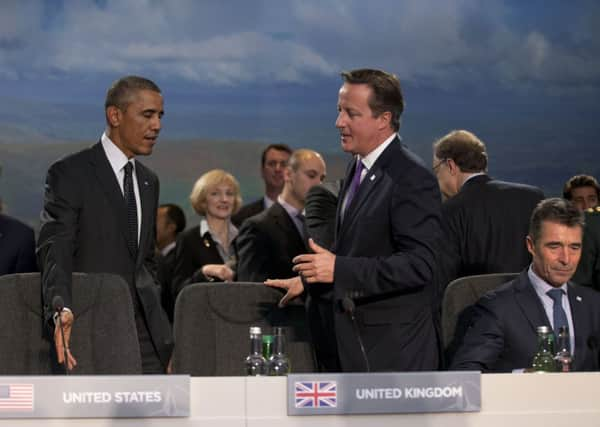David Maddox: Do Scots really want to join Nato?


Faced with the return of an old enemy in Russia and the rise of a violent, extremist form of Islam in Iraq and Syria, it was, as Nato general-secretary Anders Fogh Rasmussen put it, “a pivotal moment”.
Yet what did we get? There were many strong words on both crises, and, with Ukraine, a decision to place a force in Poland to help tackle the threat from an expansive Russia. But all this seemed to do was underline how slowly the organisation now responds.
Advertisement
Hide AdAdvertisement
Hide AdThis “spearhead” force of 4,500 will not be in place until the end of next year, while even during the summit and its bilateral meetings with different ministers, Russia appeared to be imposing a solution on Ukraine that could lead to a de facto partition of the country through a ceasefire.
The language was also powerful in how to deal with Islamic State – but the decision over whether to even take part in air strikes was postponed until after a new Iraqi government is in place, and it was very woolly about whether anything would happen even after that, despite the creation of a “core alliance” of ten countries.
Meanwhile, the group formerly known as Isis continues to inflict its barbarity on victims across Iraq and Syria – no doubt buoyed by the one firm Nato pledge: there will be no “boots on the ground” to deal with the group.
As for the claim that these government leaders are the bastions of freedom and democracy, the set-up of the conference even left that in question. Journalists were herded into one part of the Celtic Manor golf resort, while ministers and officials were kept well away at the other end. The chances of the two being allowed to talk was almost completely closed down other than in press conferences, which then became international masterclasses in avoiding answering questions.
The Polish president, Bronislaw Komorowski, spoke at length before taking a question and hurrying off; the Italian prime minister gave 20-minute answers, and the Slovak government allowed only Pravda (yes, it still exists) to ask questions. US president Barack Obama was clearly inspired by Labour: he had an all-female shortlist of people allowed to question him.
And these were among the few leaders who even bothered with press conferences. If these people are really going to claim to be the defenders of liberty, then they should be willing to be scrutinised.
This is an organisation the SNP wants an independent Scotland to join. Many Yes supporters have not been persuaded; last week would have done little to make them change their minds.